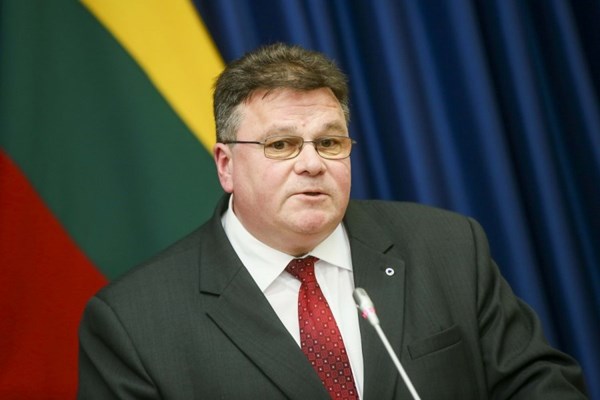Lithuanian Foreign Minister: Council of Europe will lose credibility if Russia regains voting rights
Lithuanian Minister of Foreign Affairs Linas Linkevicius said that by restoring Russia’s voting rights, the Council of Europe (CoE) risks losing credibility and influence, BNS reports.
“If the Council of Europe continues to think that the involvement of all countries is of greater value than the principles of human rights, democracy and the rule of law, which this organization was created to protect, then, over time, this could become an institutional problem that undermines the credibility of the organization,” Linkevicius said.
Lithuania was one of the few countries among the, nearly, 50 member states making up the Council of Europe that voted against “rehabilitating” Russia. Moscow’s right to vote in the EU was suspended the Russian Federation annexed Crimea and conflict began in the Donbas. Minister Linkevicius argues that the decision to restore this right to the Russian Federation “does not accurately shed light on everything that has happened, since neither Russia's actions nor its rhetoric have changed.”
“From this, we can conclude that it is not the time to take this step. Of course, we respect the decision of the majority, but it is obvious that it was not generally agreed upon, which is standard for the organization,” said the head of Lithuania’s diplomatic service.
Linkevicius urged Europe against restoring normal relations with Russia but claimed that the decision rendered by the Council of Europe could signal exactly that. “We can remember a lot when our initial reaction was seemingly principled, but we relented too quickly,” the Lithuanian minister complained.
The Council of Europe is ready to restore Russia’s voting rights in the Parliamentary Assembly (PACE). This follows from the proposal adopted by the ministers of foreign affairs, representing the 47 member states in the Council of Europe, at a Council of Europe’s Committee of Ministers meeting in Helsinki on Friday, May 17. The document reads that all CoE member countries should have the right to participate in the work of the Council of Europe and PACE equally, as reported by Deutsche Welle. Representatives of Ukraine, Georgia, and three Baltic countries voted against the proposal. Armenia and Russia abstained.
The Parliamentary Assembly of the Council of Europe deprived the Russian delegation of the right to vote after Russia’s annexation of the Crimea. Moscow also lost the opportunity to work in the governing structures of the assembly and to participate in the observation of elections. In June 2017, Russia announced that it would stop paying contributions to the Council of Europe budget until the full restoration of the powers of its delegation to the PACE. Moscow’s annual contribution was about 33 million euros, which is almost 10 percent of the organization’s budget.
In October 2018, Moscow set a condition that it would not return to the PACE until it amends regulations, which prohibits removing voting rights from the national delegations during sessions. The PACE did not change these regulations.
